Alternative Energy Sources Alternative Energy Sources Solar Wind

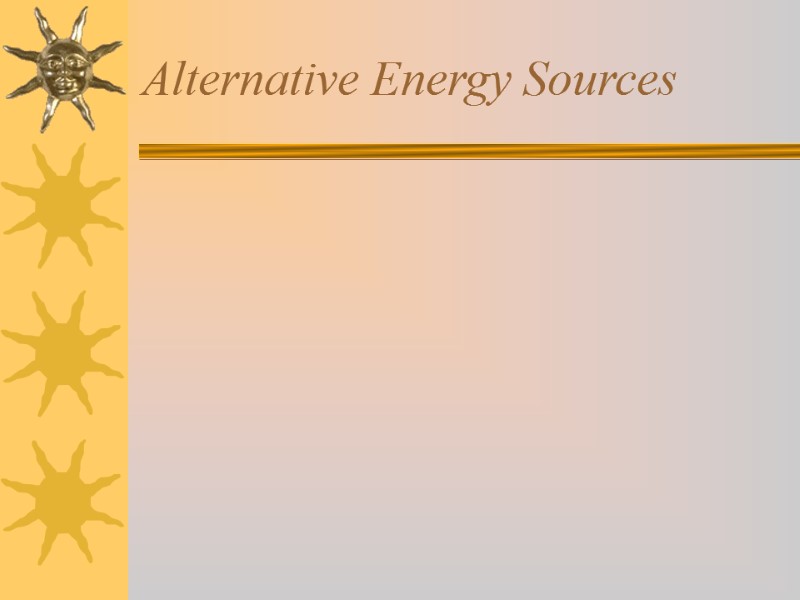
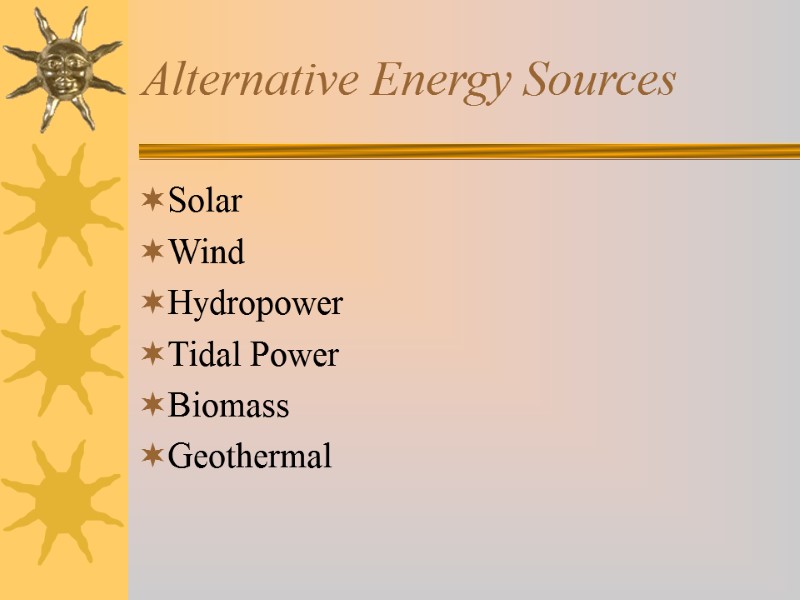
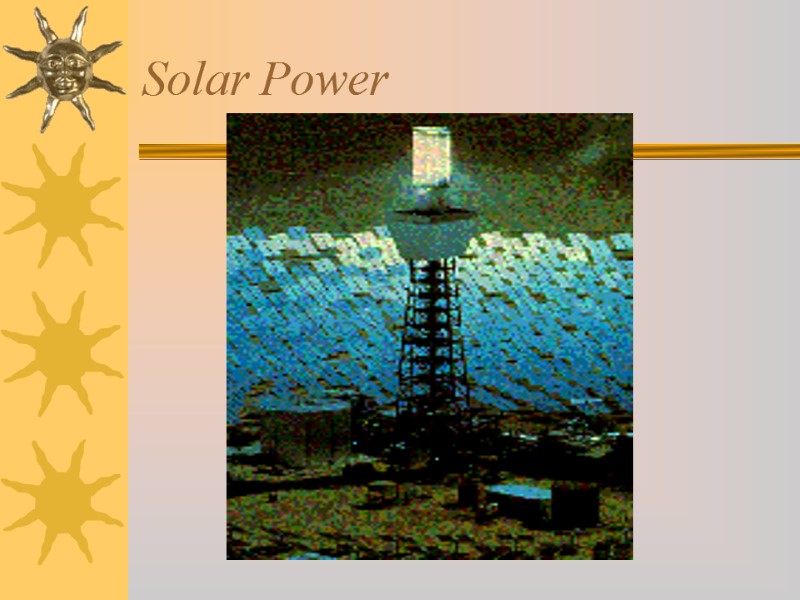
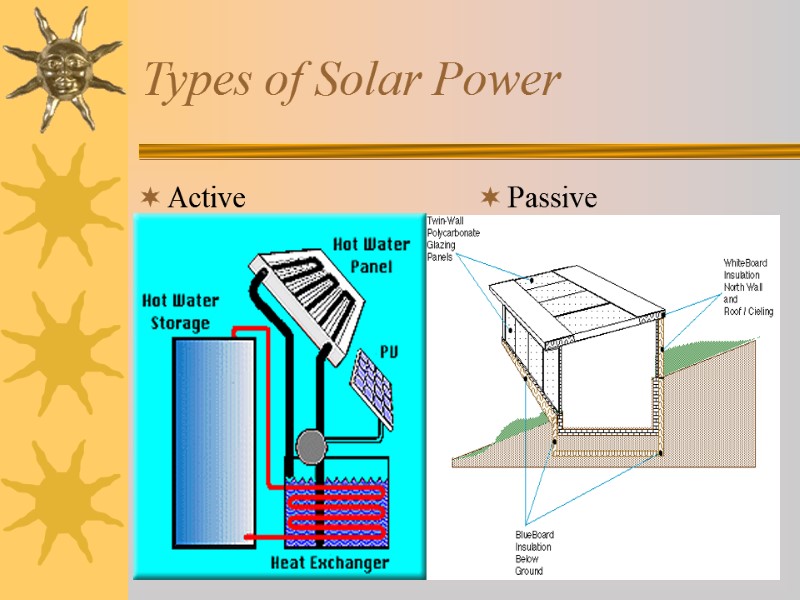
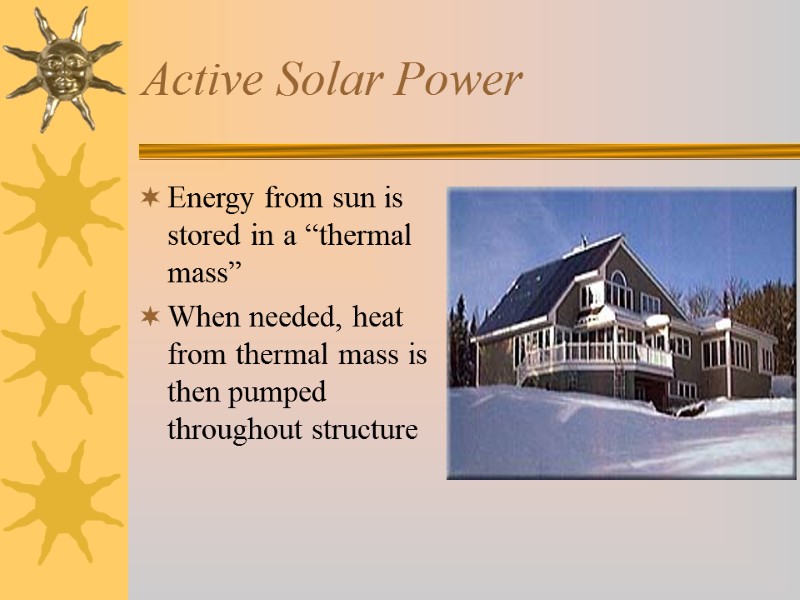
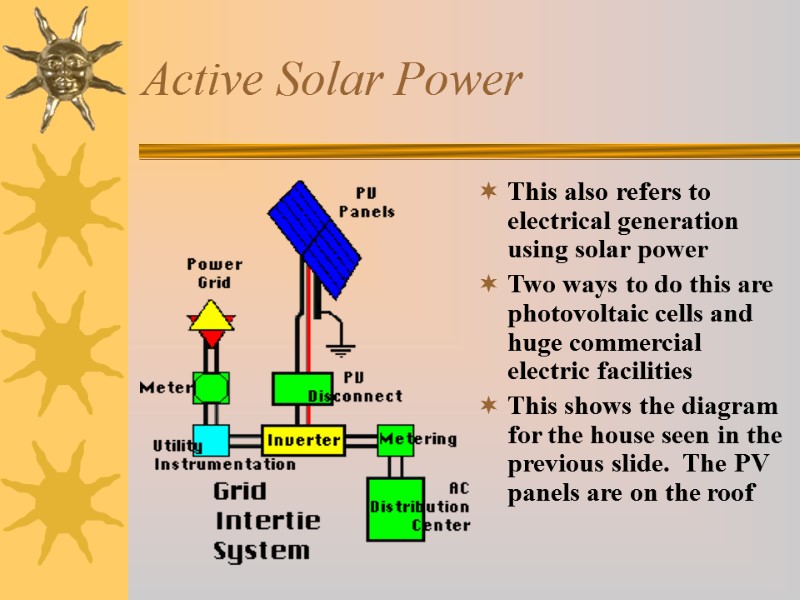
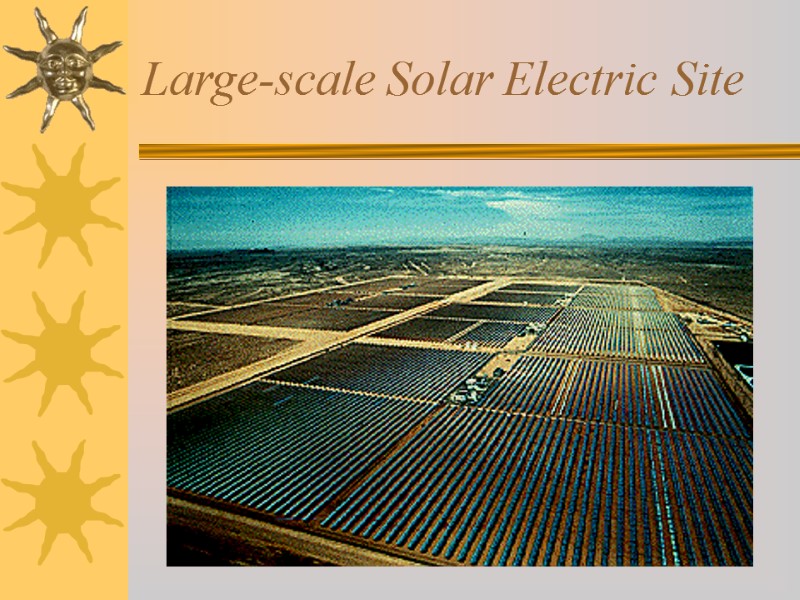
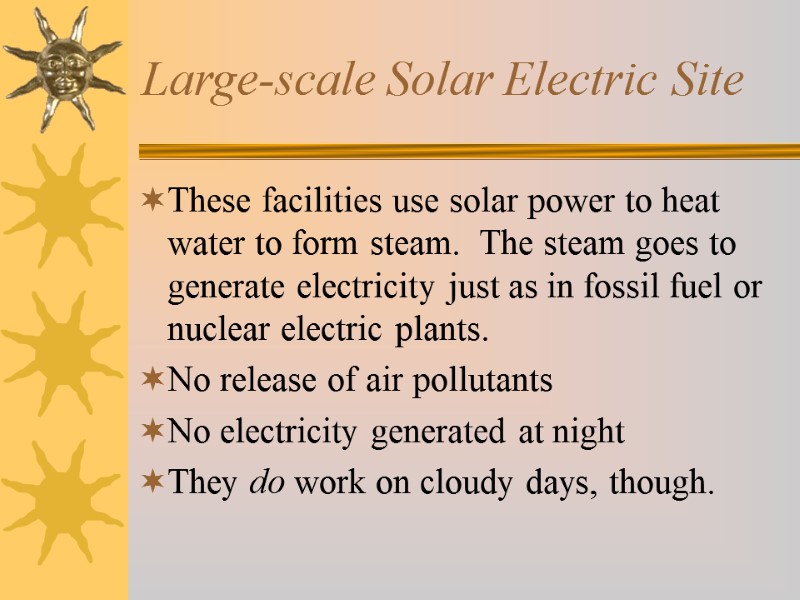
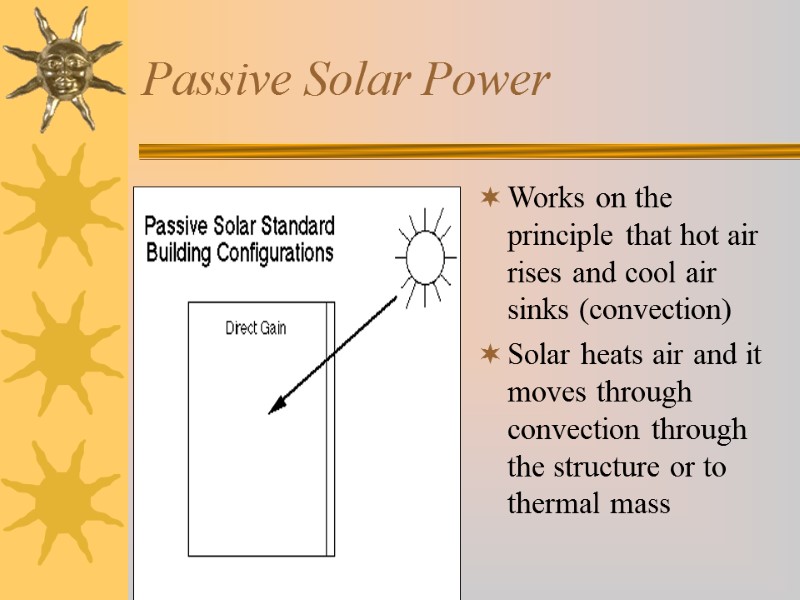
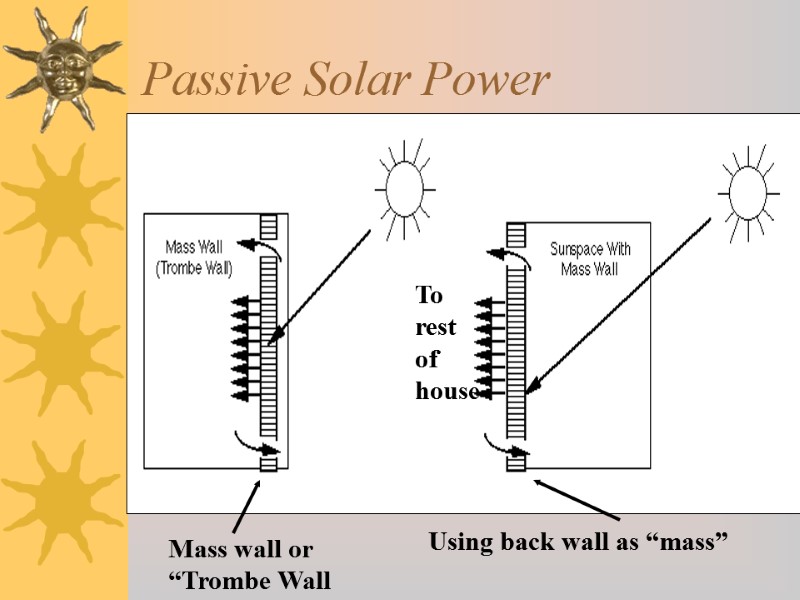
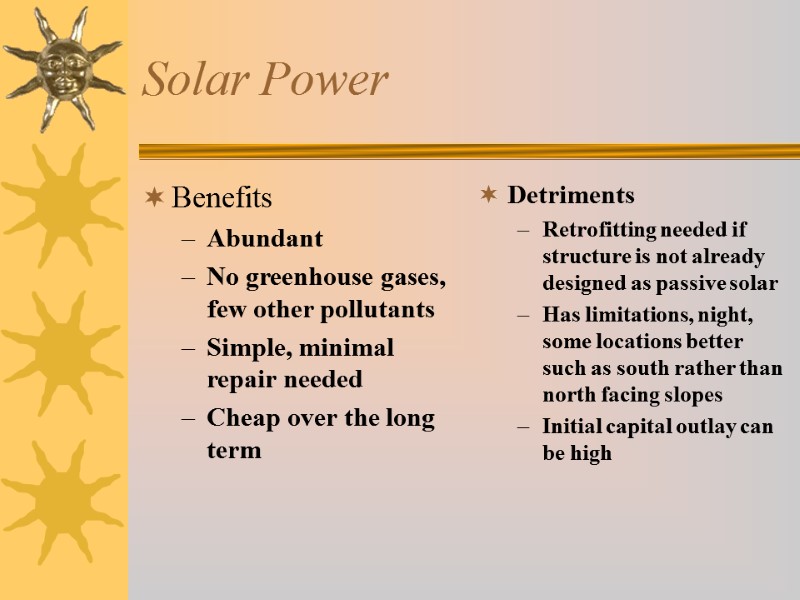
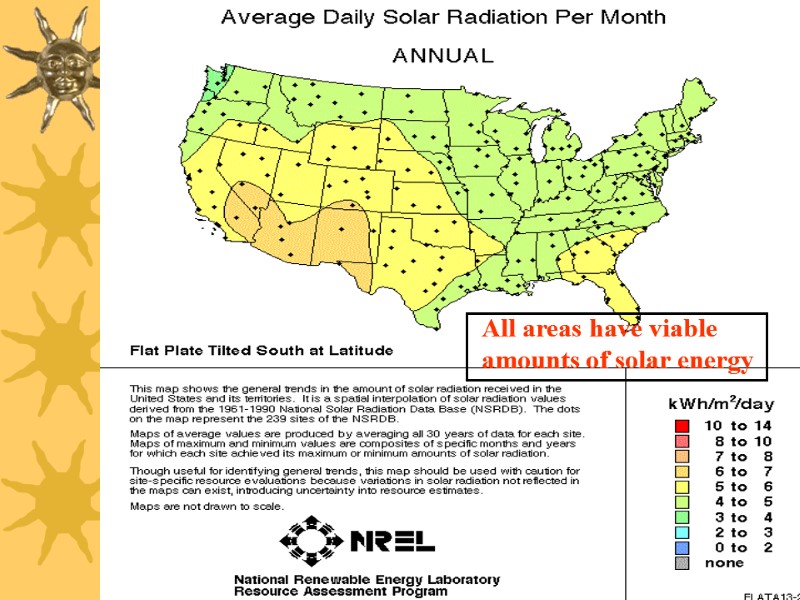
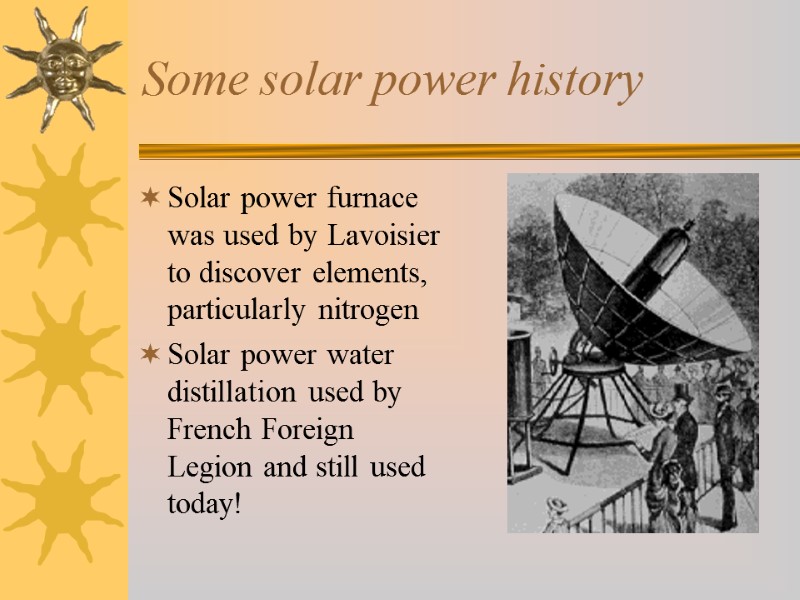
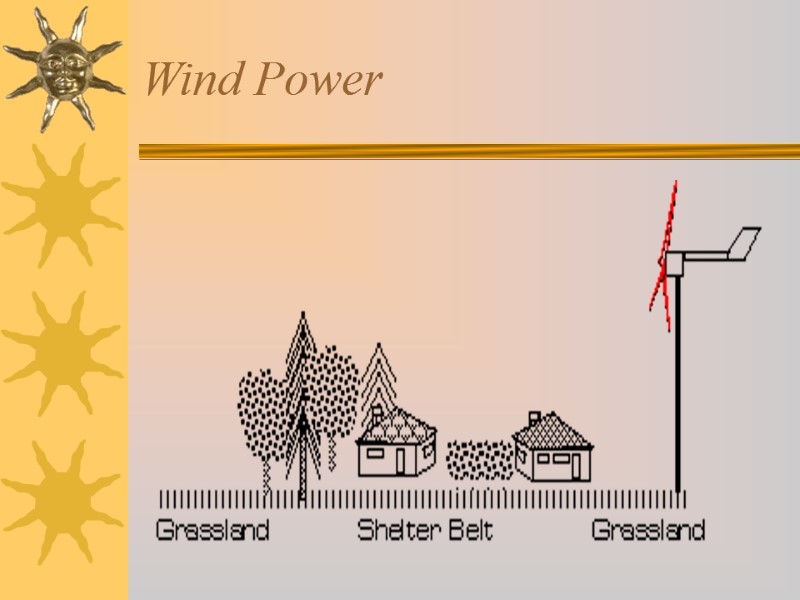
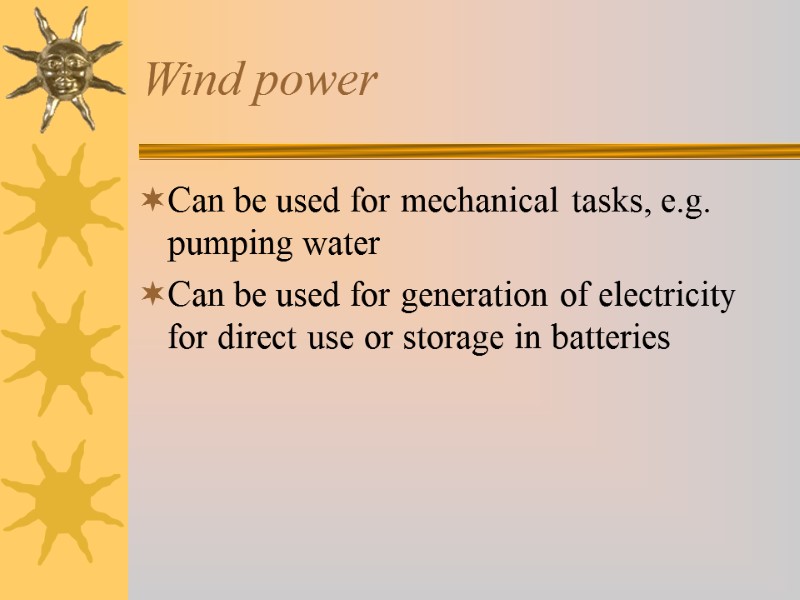
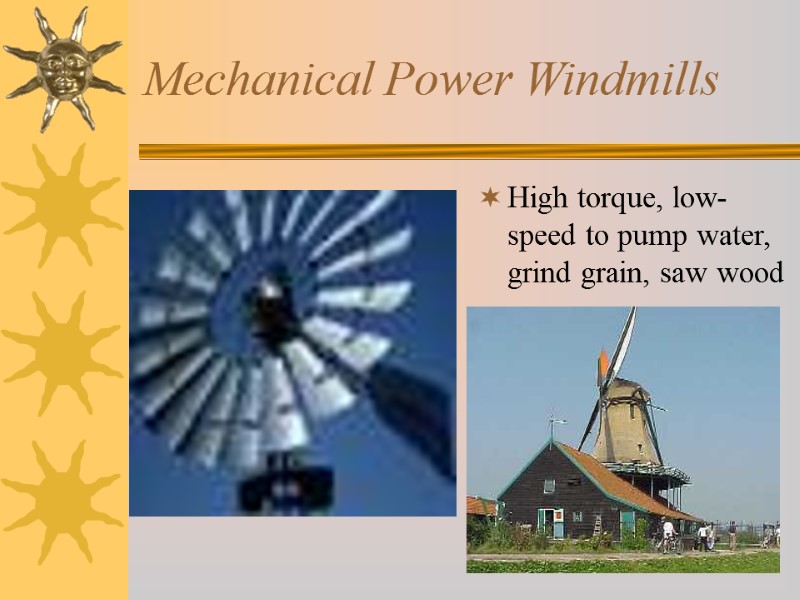
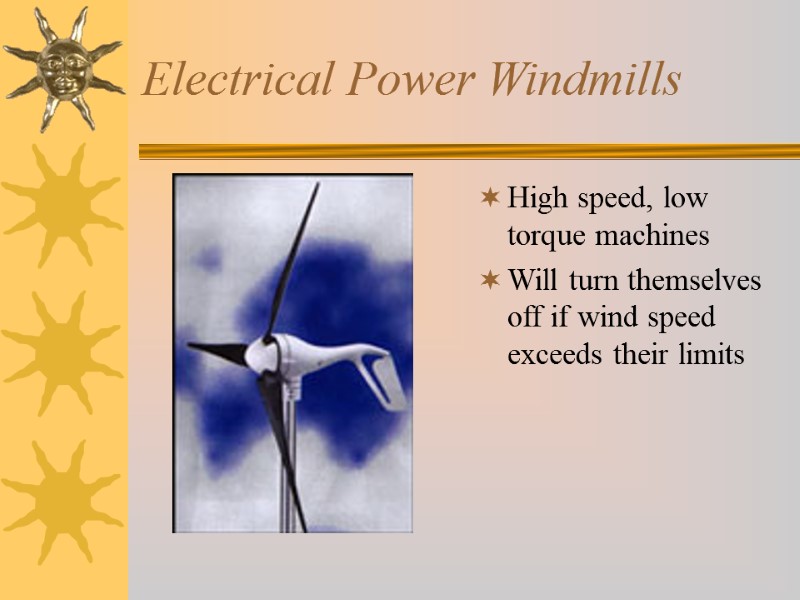
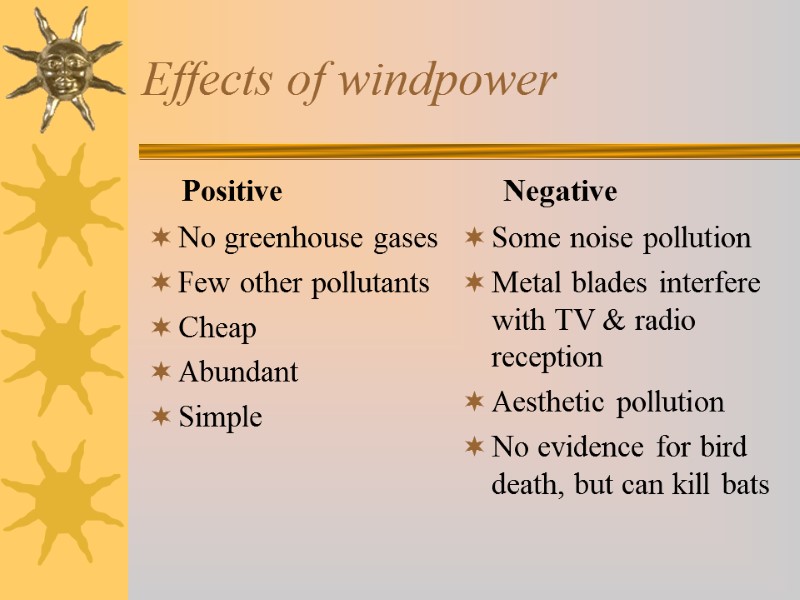
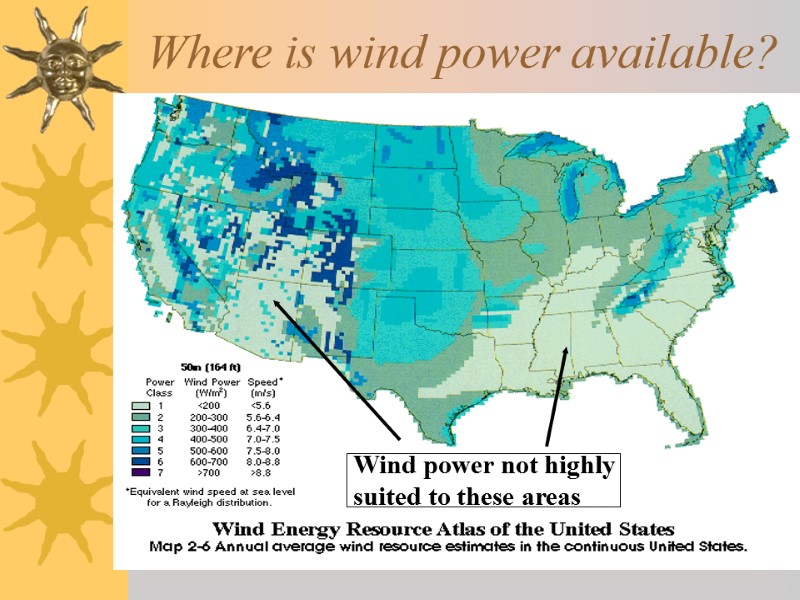
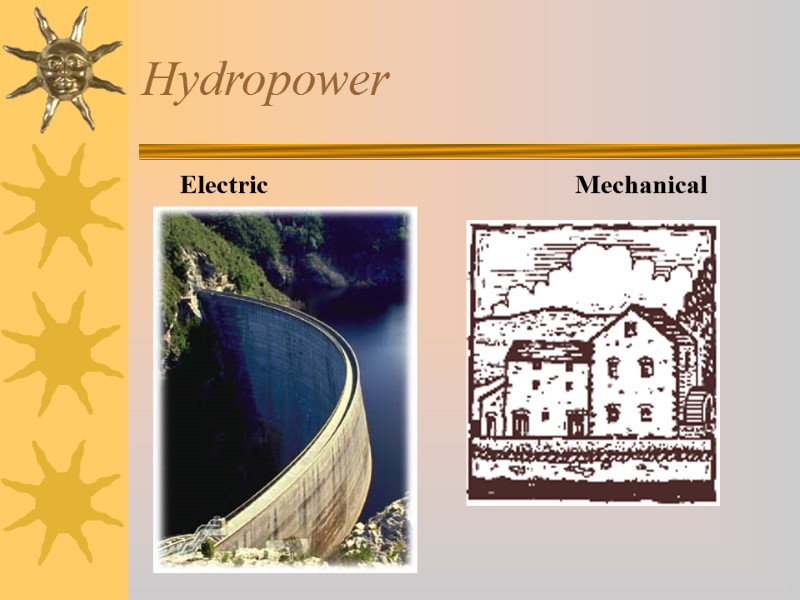
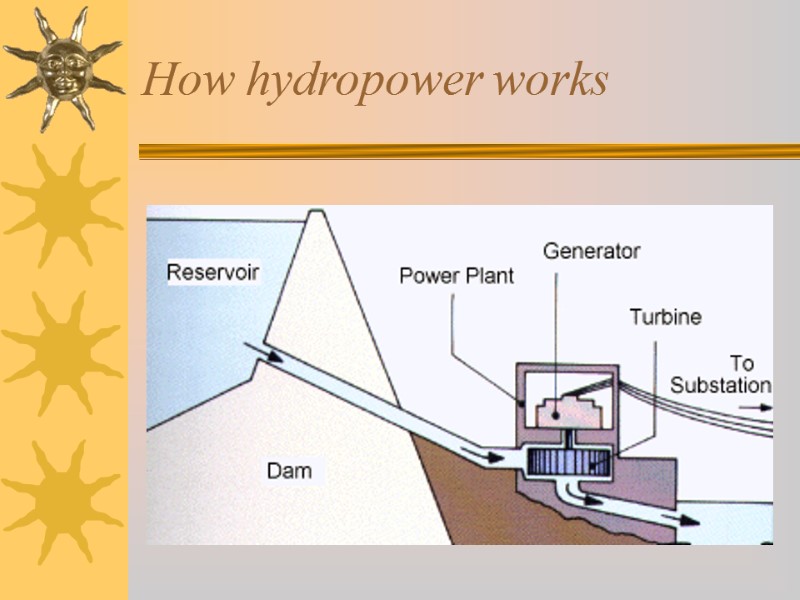
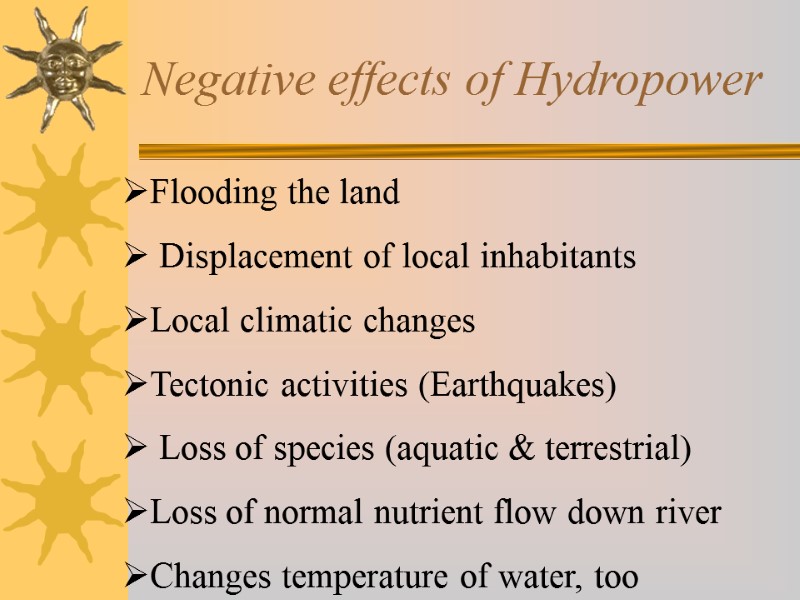
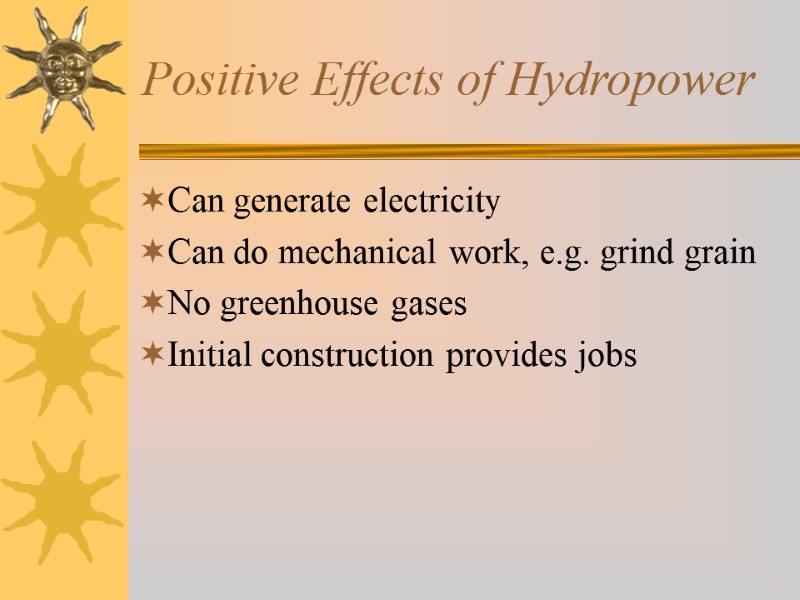
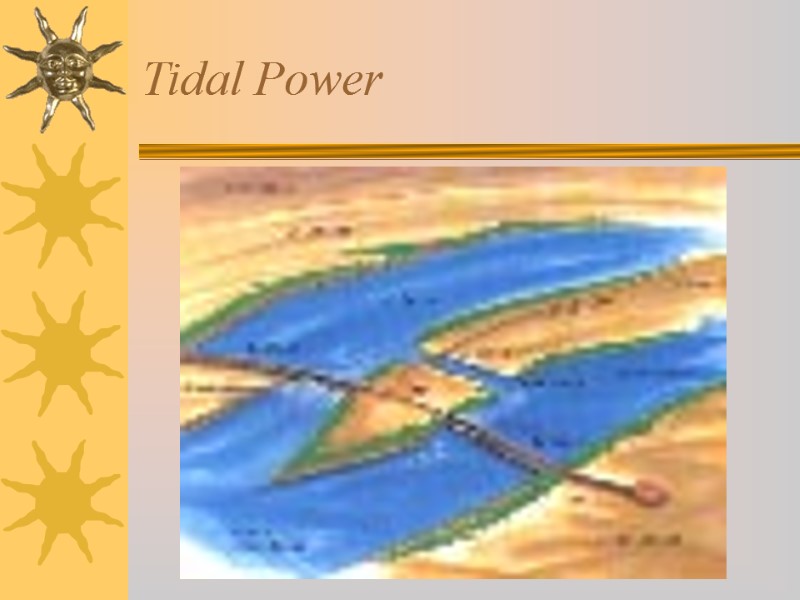
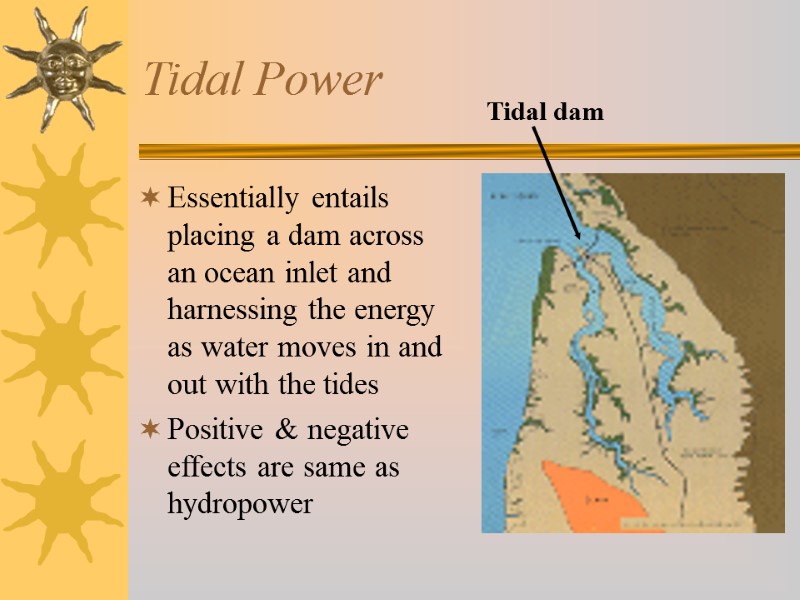
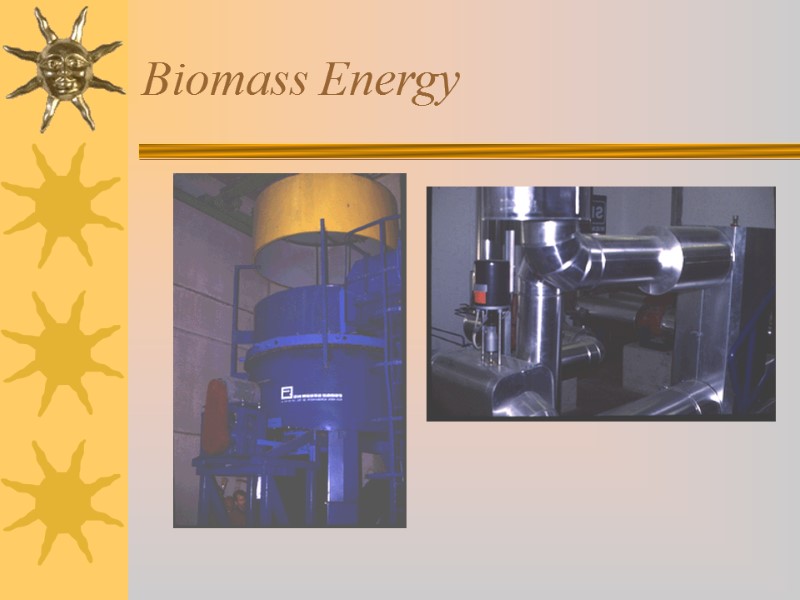
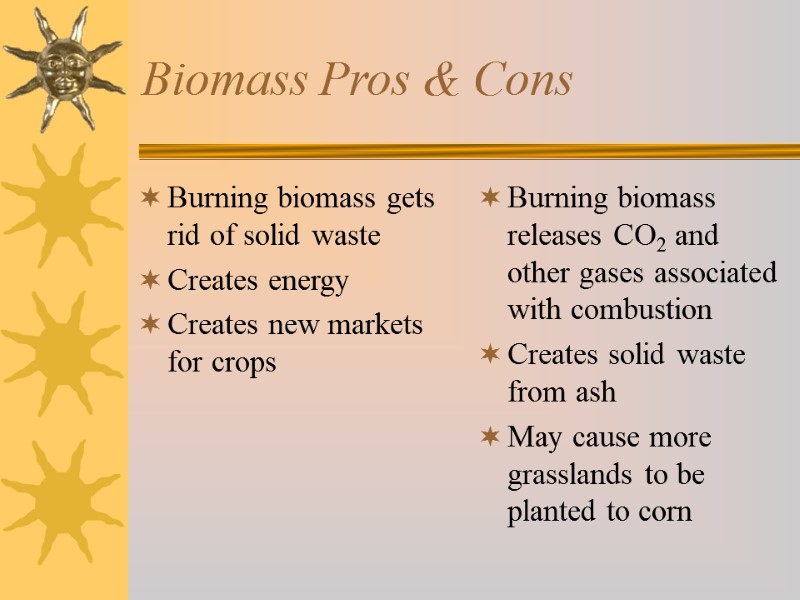
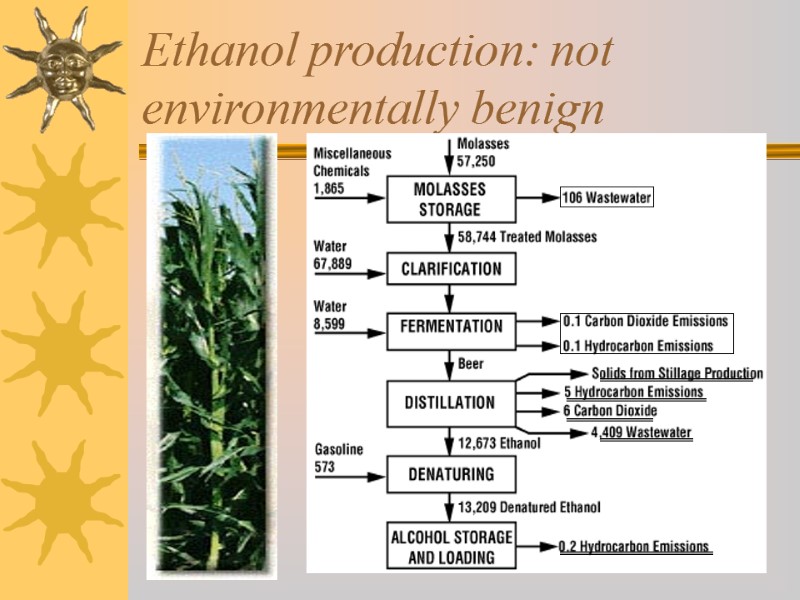
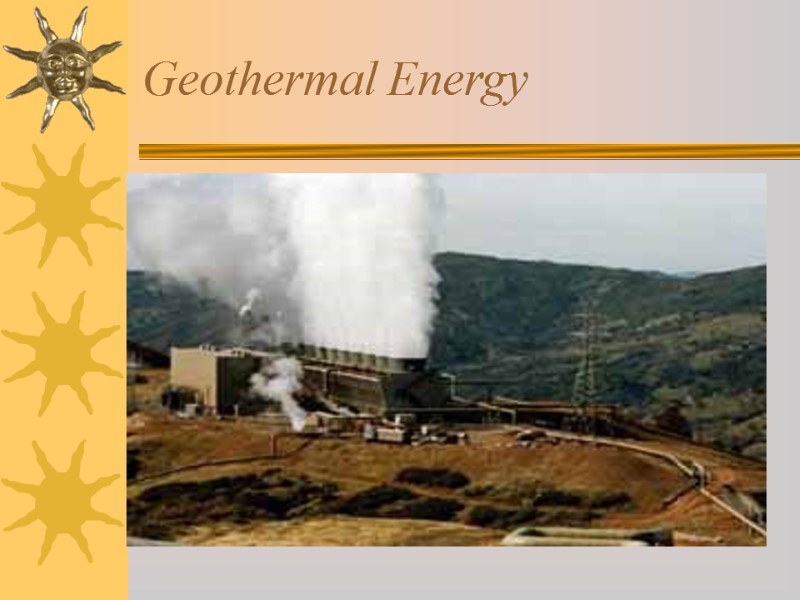
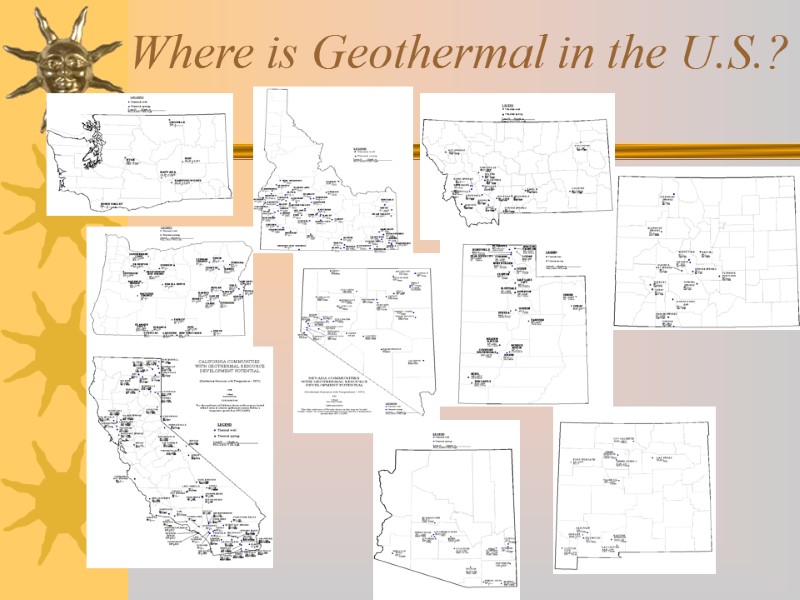
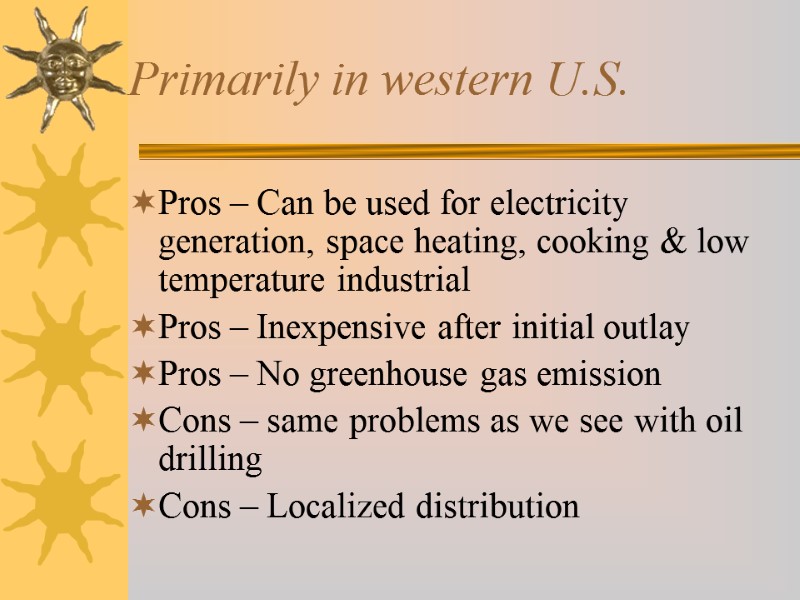
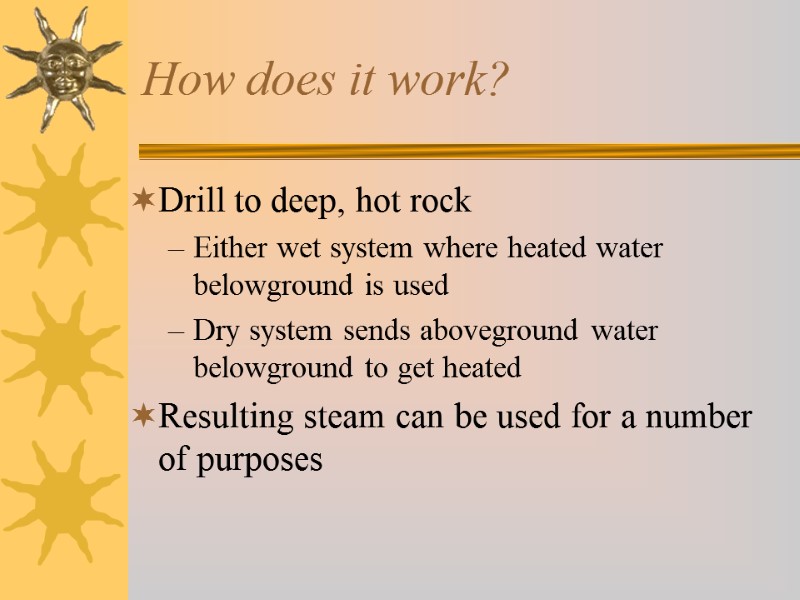
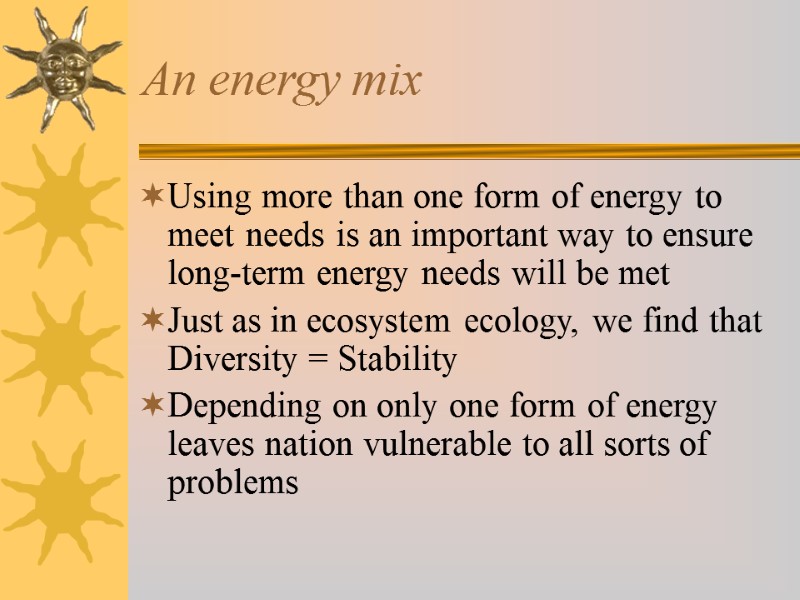
6894-alternative_energy_sources.ppt
- Количество слайдов: 33
 Alternative Energy Sources
Alternative Energy Sources
 Alternative Energy Sources Solar Wind Hydropower Tidal Power Biomass Geothermal
Alternative Energy Sources Solar Wind Hydropower Tidal Power Biomass Geothermal
 Solar Power
Solar Power
 Types of Solar Power Active Passive
Types of Solar Power Active Passive
 Active Solar Power Energy from sun is stored in a “thermal mass” When needed, heat from thermal mass is then pumped throughout structure
Active Solar Power Energy from sun is stored in a “thermal mass” When needed, heat from thermal mass is then pumped throughout structure
 Active Solar Power This also refers to electrical generation using solar power Two ways to do this are photovoltaic cells and huge commercial electric facilities This shows the diagram for the house seen in the previous slide. The PV panels are on the roof
Active Solar Power This also refers to electrical generation using solar power Two ways to do this are photovoltaic cells and huge commercial electric facilities This shows the diagram for the house seen in the previous slide. The PV panels are on the roof
 Large-scale Solar Electric Site
Large-scale Solar Electric Site
 Large-scale Solar Electric Site These facilities use solar power to heat water to form steam. The steam goes to generate electricity just as in fossil fuel or nuclear electric plants. No release of air pollutants No electricity generated at night They do work on cloudy days, though.
Large-scale Solar Electric Site These facilities use solar power to heat water to form steam. The steam goes to generate electricity just as in fossil fuel or nuclear electric plants. No release of air pollutants No electricity generated at night They do work on cloudy days, though.
 Passive Solar Power Works on the principle that hot air rises and cool air sinks (convection) Solar heats air and it moves through convection through the structure or to thermal mass
Passive Solar Power Works on the principle that hot air rises and cool air sinks (convection) Solar heats air and it moves through convection through the structure or to thermal mass
 Passive Solar Power Mass wall or “Trombe Wall Using back wall as “mass” To rest of house
Passive Solar Power Mass wall or “Trombe Wall Using back wall as “mass” To rest of house
 Solar Power Benefits Abundant No greenhouse gases, few other pollutants Simple, minimal repair needed Cheap over the long term Detriments Retrofitting needed if structure is not already designed as passive solar Has limitations, night, some locations better such as south rather than north facing slopes Initial capital outlay can be high
Solar Power Benefits Abundant No greenhouse gases, few other pollutants Simple, minimal repair needed Cheap over the long term Detriments Retrofitting needed if structure is not already designed as passive solar Has limitations, night, some locations better such as south rather than north facing slopes Initial capital outlay can be high
 All areas have viable amounts of solar energy
All areas have viable amounts of solar energy
 Some solar power history Solar power furnace was used by Lavoisier to discover elements, particularly nitrogen Solar power water distillation used by French Foreign Legion and still used today!
Some solar power history Solar power furnace was used by Lavoisier to discover elements, particularly nitrogen Solar power water distillation used by French Foreign Legion and still used today!
 Wind Power
Wind Power
 Wind power Can be used for mechanical tasks, e.g. pumping water Can be used for generation of electricity for direct use or storage in batteries
Wind power Can be used for mechanical tasks, e.g. pumping water Can be used for generation of electricity for direct use or storage in batteries
 Mechanical Power Windmills High torque, low-speed to pump water, grind grain, saw wood
Mechanical Power Windmills High torque, low-speed to pump water, grind grain, saw wood
 Electrical Power Windmills High speed, low torque machines Will turn themselves off if wind speed exceeds their limits
Electrical Power Windmills High speed, low torque machines Will turn themselves off if wind speed exceeds their limits
 Effects of windpower No greenhouse gases Few other pollutants Cheap Abundant Simple Some noise pollution Metal blades interfere with TV & radio reception Aesthetic pollution No evidence for bird death, but can kill bats Positive Negative
Effects of windpower No greenhouse gases Few other pollutants Cheap Abundant Simple Some noise pollution Metal blades interfere with TV & radio reception Aesthetic pollution No evidence for bird death, but can kill bats Positive Negative
 Where is wind power available? Wind power not highly suited to these areas
Where is wind power available? Wind power not highly suited to these areas
 Hydropower Electric Mechanical
Hydropower Electric Mechanical
 How hydropower works
How hydropower works
 Negative effects of Hydropower Flooding the land Displacement of local inhabitants Local climatic changes Tectonic activities (Earthquakes) Loss of species (aquatic & terrestrial) Loss of normal nutrient flow down river Changes temperature of water, too
Negative effects of Hydropower Flooding the land Displacement of local inhabitants Local climatic changes Tectonic activities (Earthquakes) Loss of species (aquatic & terrestrial) Loss of normal nutrient flow down river Changes temperature of water, too
 Positive Effects of Hydropower Can generate electricity Can do mechanical work, e.g. grind grain No greenhouse gases Initial construction provides jobs
Positive Effects of Hydropower Can generate electricity Can do mechanical work, e.g. grind grain No greenhouse gases Initial construction provides jobs
 Tidal Power
Tidal Power
 Tidal Power Essentially entails placing a dam across an ocean inlet and harnessing the energy as water moves in and out with the tides Positive & negative effects are same as hydropower Tidal dam
Tidal Power Essentially entails placing a dam across an ocean inlet and harnessing the energy as water moves in and out with the tides Positive & negative effects are same as hydropower Tidal dam
 Biomass Energy
Biomass Energy
 Biomass Pros & Cons Burning biomass gets rid of solid waste Creates energy Creates new markets for crops Burning biomass releases CO2 and other gases associated with combustion Creates solid waste from ash May cause more grasslands to be planted to corn
Biomass Pros & Cons Burning biomass gets rid of solid waste Creates energy Creates new markets for crops Burning biomass releases CO2 and other gases associated with combustion Creates solid waste from ash May cause more grasslands to be planted to corn
 Ethanol production: not environmentally benign
Ethanol production: not environmentally benign
 Geothermal Energy
Geothermal Energy
 Where is Geothermal in the U.S.?
Where is Geothermal in the U.S.?
 Primarily in western U.S. Pros – Can be used for electricity generation, space heating, cooking & low temperature industrial Pros – Inexpensive after initial outlay Pros – No greenhouse gas emission Cons – same problems as we see with oil drilling Cons – Localized distribution
Primarily in western U.S. Pros – Can be used for electricity generation, space heating, cooking & low temperature industrial Pros – Inexpensive after initial outlay Pros – No greenhouse gas emission Cons – same problems as we see with oil drilling Cons – Localized distribution
 How does it work? Drill to deep, hot rock Either wet system where heated water belowground is used Dry system sends aboveground water belowground to get heated Resulting steam can be used for a number of purposes
How does it work? Drill to deep, hot rock Either wet system where heated water belowground is used Dry system sends aboveground water belowground to get heated Resulting steam can be used for a number of purposes
 An energy mix Using more than one form of energy to meet needs is an important way to ensure long-term energy needs will be met Just as in ecosystem ecology, we find that Diversity = Stability Depending on only one form of energy leaves nation vulnerable to all sorts of problems
An energy mix Using more than one form of energy to meet needs is an important way to ensure long-term energy needs will be met Just as in ecosystem ecology, we find that Diversity = Stability Depending on only one form of energy leaves nation vulnerable to all sorts of problems

